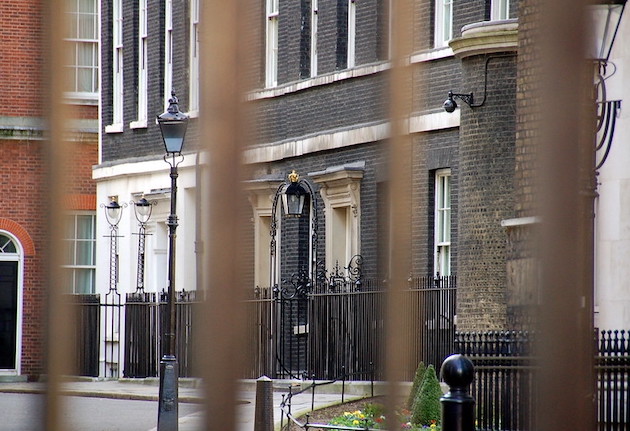Over 70 organisations from across civil society in England and Wales have provided evidence for a new report to the United Nations on the UK’s human rights record, writes Emma Guy for Each Other.
The report by Just Fair concludes that rights in the UK – including everyday rights such as to food, housing, social security, work, trade unions, health and education – are in crisis.
Shocking statistics outline the state of human rights in the UK
The report identifies a number of shocking statistics, including the fact that one in four children are growing up in poverty in the UK.
The report outlines that in 2021/22, a staggering 2.1m emergency food parcels were provided to people in crisis by food banks in the Trussell Trust network. Meanwhile, the report also concluded that six out of ten people with learning disabilities die before the age of 65.
Citizen’s Advice Newcastle gave evidence on the cost-of-living crisis and the impact it is having on the people it serves. It highlighted that its “biggest concern is that people don’t have enough money to live. There was one example of a local mother of two who couldn’t afford to pay for both the bus fare to her local job centre as well as feeding her kids, she chose to feed her children and missed her job centre appointment. As a result, she was sanctioned.”
Meanwhile, the Greater Manchester Disabled People’s Panel gave evidence on how particular groups are often at the sharpest end of human rights violations. It said that today’s crisis is like “a perfect storm for disabled people, especially those experiencing other forms of discrimination as well. We are trying to raise the point that the cost-of-living crisis affects everyone, but it is acutely felt by disabled people.”
What is the Right to an Adequate Standard of Living?
Under Article 11 of the The International Covenant on Economic, Social and Cultural Rights (ICESCR), the right to an adequate standard of living includes the provision of adequate housing, food and water.
The ICESCR is monitored by the UN Committee on Economic, Social and Cultural Rights (CESCR). This right is closely linked to the right to health and applies to housing as well as services such as hospitals, care homes, prisons and mental health services.
The minimum requirements for adequate housing under the ICESCR are:
- security of tenure
- adequate lighting, heating and sanitation
- habitability
- location from which health and education services are accessible, including the provision of adequate infrastructure
- cultural adequacy
States that have ratified the ICESCR have a legal obligation to respect, protect and fulfill those rights.
A review is underway
The UN Committee on Economic, Social and Cultural Rights is currently beginning a major review of the UK. The UK human rights organisation Just Fair has coordinated this report from civil society organisations, funded by the Equality and Human Rights Commission (EHRC).
Jess McQuail, Director of Just Fair, said:
“This week UK politicians are talking a big game on inequality with world and business leaders at Davos. Yet at the same time, a report from more than 70 civil society organisations has found that our basic human rights at home are crumbling. Far from protecting our essential rights – including food, housing, work, health and education – the UK government is failing people across the board. Charities from across England and Wales report soaring levels of poverty, a totally inadequate social security system, and a depleted health service. This report to the UN is a vital step in holding the UK government to account.”
The report collates evidence from the last five years to the present day. The successive shockwaves of austerity, Covid-19 and the cost-of-living crisis have proved to have a deeply damaging effect. Evidence was provided on a range of different topics, but all share a clear message – change is needed, now.
What happens next?
The UN will now examine this evidence, along with all other submissions from across the UK. It will then begin preparing for the next stage of its review, which will ultimately conclude in 2024 with a set of recommendations for how the UK government can better respect, protect, and fulfil basic human rights.
Report by Emma Guy, editor for Each Other.
Further resources:
Online launch of UNCESCR civil society report for England and Wales
Submission to UN Committee on Economic, Social & Cultural Rights - Just Fair
Setting the scene - economic, social, and cultural rights in the UK: A companion guide - Just Fair
Economic, social and cultural rights must be enshrined in UK law - Letter to the Guardian by Jess McQuail, Director of Just Fair
The Equality and Human Rights Commission (EHRC) is an independent statutory body with the responsibility to encourage equality and diversity, eliminate unlawful discrimination, and protect and promote the human rights of everyone in Britain. Their job is to help make Britain fairer. They do this by safeguarding and enforcing the laws that protect people’s rights to fairness, dignity and respect. They enforce equality legislation on age, disability, gender reassignment, marriage and civil partnership, pregnancy and maternity, race, religion or belief, sex and sexual orientation.
Original source: Each Other
Image credit: James Stringer, Flickr creative commons

